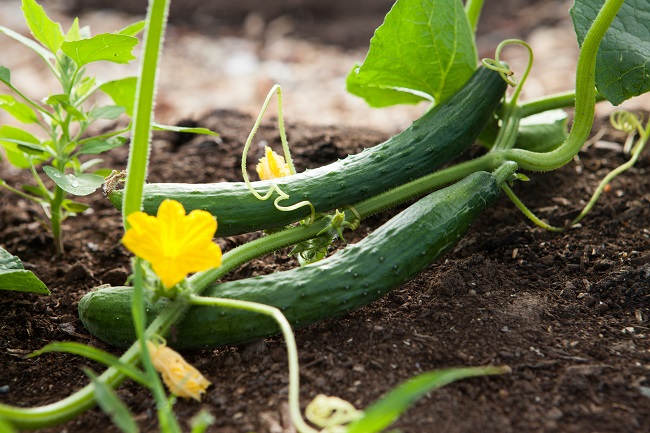
The cucumber is a vegetable that has been cultivated by humans for thousands of years. The history of cucumbers can be traced back to ancient civilizations in India and Western Asia, where they were first domesticated.
Cucumbers were likely brought to Europe by the Romans, who valued them for their refreshing taste and believed that they had healing properties. The cultivation of cucumbers spread throughout Europe in the centuries that followed, and by the Middle Ages, they were a popular vegetable throughout the continent.
In the 16th century, European explorers brought cucumbers to the Americas, where they were initially cultivated as ornamental plants. However, by the 18th century, cucumbers had become a common vegetable in North America, and they were widely grown by farmers throughout the continent.
Today, cucumbers are grown and consumed all over the world, and they are a popular vegetable in many different cultures. They are eaten raw in salads, pickled in vinegar, and used as a garnish for many different dishes.
Cucumbers are also valued for their health benefits. They are low in calories and high in water content, making them a refreshing and hydrating food. They are also a good source of vitamins and minerals, including vitamin C and potassium.
How to Grow Cucumbers
Lots of Sun
Choose a sunny location with well-draining soil. Cucumbers need at least 6 hours of sunlight per day and prefer soil that is rich in organic matter.
Planting
Plant cucumber seeds or seedlings in the spring after the danger of frost has passed. Sow seeds directly into the soil or start them indoors 3-4 weeks before the last frost date. Plant cucumber seeds 1 inch deep and 6-8 inches apart, with rows spaced 3-5 feet apart. If using seedlings, space them 12-18 inches apart.
Keep The Soil Moist
Keep the soil moist but not waterlogged. Cucumbers require consistent moisture to grow well.
Fertilizer
Fertilize the plants with a balanced fertilizer every 4-6 weeks. Cucumbers are heavy feeders, so be sure to give them enough nutrients to support their growth.
Consider a Trellis
Train the plants to climb a trellis or fence to save space and improve air circulation. This can also help prevent disease and keep the fruit clean. Read this article on how to choose the best trellis and this article for information on how to make your own trellis.
Common Pest Problems
Pests that can be problematic for cucumbers include cucumber beetles, aphids, spider mites, and whiteflies. You can use insecticides to control infestations, or you can try using natural predators like ladybugs or lacewings to control pests like aphids. You can also use physical barriers like row covers to keep pests away from your plants.
Common Disease Problems
Some common diseases that affect cucumbers include powdery mildew, downy mildew, bacterial wilt, and cucumber mosaic virus. To help control diseases, it’s important to practice good crop rotation and to avoid planting cucumbers in the same location every year. Additionally, you can use fungicides to control fungal diseases, and you can remove and destroy infected plants to prevent the spread of disease.
Harvesting
Harvest cucumbers when they are about 6-8 inches long and firm to the touch. Cut them off the vine with a sharp knife or pruning shears.
10 Fun Facts About Cucumbers
Cucumbers are composed of over 95% water, making them an excellent way to stay hydrated.
Cucumbers were once used by ancient civilizations for medicinal purposes, including treating headaches and bad breath.
The word “pickle” comes from the Dutch word “pekel”, which means brine. Pickles are cucumbers that have been pickled in a solution of vinegar, water, and spices.
Cucumbers are low in calories and high in fiber, making them a great food for weight loss and digestion.
Cucumbers are technically a fruit, not a vegetable, as they develop from the flower of the cucumber plant and contain seeds.
Cucumbers are one of the oldest cultivated crops in the world, with evidence of their cultivation dating back to ancient Egypt over 3,000 years ago.
Cucumbers are a natural diuretic, which means they can help flush excess fluid from the body.
Cucumbers are a good source of vitamin K, which is important for bone health and blood clotting.
Cucumbers contain a compound called cucurbitacin, which gives them a bitter taste and can cause digestive upset in some people.
Cucumbers can be used in a variety of ways, from slicing them into salads to blending them into smoothies to pickling them for a tangy snack.
Related Articles & Free Email Newsletter Sign Up
Carrots Offer High Nutritional Value but They Don’t Ward Off Evil Spirits
Cool and Refreshing Mint Thrives in Warm Weather



Comment here